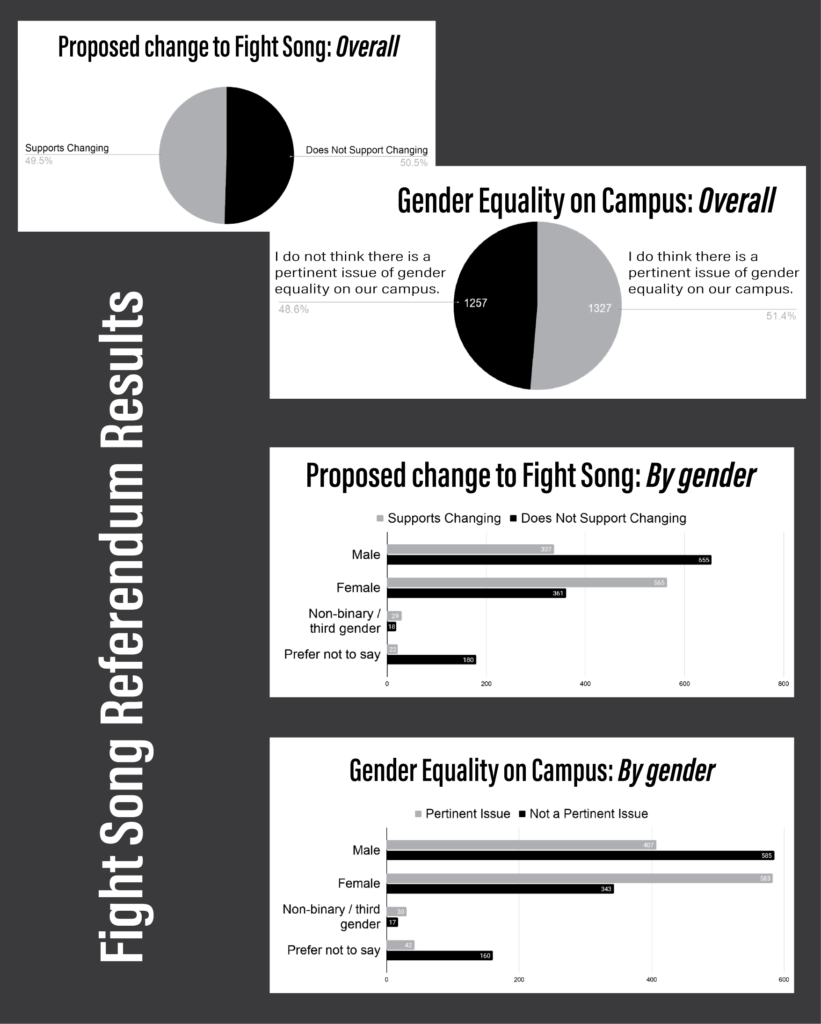
Last week, elections were held for Student Government Association (SGA) positions for next term. Those running for office campaigned throughout the week, from meeting students at Sting Break to handing out stickers on Tech Green.
3,534 undergraduates voted in this year’s elections, more than a thousand more than last year’s vote, which coincided with campus closing due to the pandemic.
Current President Brielle Lonsberry credits the higher turnout to advertisements across campus and the special referendum.
Executive Ticket
Samuel Ellis and Ajanta Choudhury won the undergraduate student body vote for president and vice president, beating out current Vice President Kyle Smith’s and Salmata Barrie’s ticket by almost 700 votes (21%).
Ellis, third-year INTA, and Choudhury, third-year BIO, ran a campaign with the motto “choose forward.”
Their platform highlighted mental health as their number one priority. They also advocated for institutional support for BIPOC students, fair pay for TAs, transparent curving policies and, perhaps most intriguingly, fewer parking tickets given to students.
“Thank you to everyone who voted. Regardless of who you voted for, we are thrilled and humbled to serve y’all,” the ticket’s Instagram posted after the winners were announced.
“We cannot wait to celebrate yesterday’s win with tomorrow’s work!”
Constitution change
The ballot also held a proposed amendment to the SGA Constitution, which would allow the option to pass future amendments without putting it to a vote in the student body.
This change comes as SGA plans to undergo a restructuring process later this semester. The changes to how student government operates, financially and structurally, will likely need several Constitutional amendments to implement.
The amendment did not pass, as it failed to get the two-thirds majority needed.
Cheer or join?
The ballot included a referendum collecting students’ opinions on proposed fight song changes. This vote would not actually change the wording, from “cheer the brave and bold” to “join the brave and bold,” but served to gauge students’ reactions to the wording change.
2,061 students, both undergraduate and graduate, answered questions on the referendum. The results were split, with 49.5% in support of the change and 50.5% opposed.
The results broken down by gender were also divisive, with a majority of female-identified students voting in favor, but a minority of male-identified students.
Additionally, the referendum asked whether or not students agreed that “there is a pertinent issue of gender equality on our campus.”
Over half of the male undergraduate students surveyed said there was not an issue out of 992 voters. Female students disagreed, with 63% or 583 claiming there is a pertinent issue.
